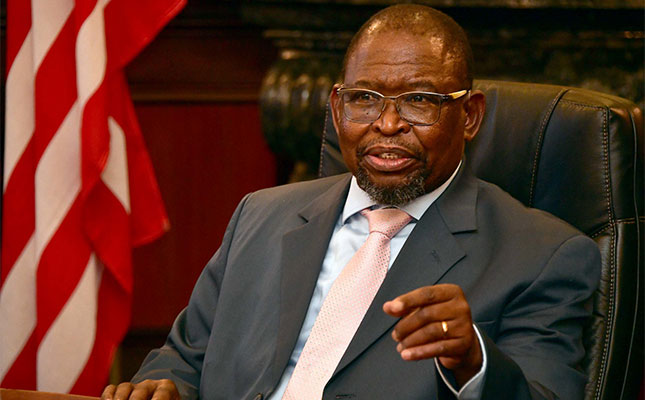
According to the statement, the decision will result in a short fall of about R75 billion, which will require Parliament to adjust expenditure in a manner that ensures that the loss of revenue does not harm South Africa’s fiscal sustainability.
It also means that measures to cushion lower income households against the potential negative impact of the rate increase will be withdrawn and other expenditure revisited.
The National Treasury said that the decision to forgo the increase followed extensive consultations with political parties and careful consideration of the recommendations of the parliamentary committees.
The DA, however, released a statement yesterday in which it confirmed reports that lawyers acting for Minister of Finance Enoch Godongwana approached their lawyers proposing an out-of-court settlement in the matter the DA bought to the Western Cape High Court on 22 April to interdict the VAT increase.
The DA in an earlier statement said that it opposed the “anti-growth, anti-jobs and anti-poor VAT-based budget”, a “debilitating and bulldozing budget that will lead to further poverty by taking money from people who cannot afford it and giving it to people who do not know how to use it”, and “a bullying budget that will lead to more young people losing hope when they realise that they will be poorer than their parents.”
Dawie Maree, head of FNB Agriculture Marketing and Information, told Farmer’s Weekly that the rejection of the VAT hike was good news for consumers, and particularly middle- and lower-income consumers who were already struggling to make ends meet because of higher living costs and poor economic growth.
“Having higher VAT would have left already cash-strapped consumers with even less money to spend on food, forcing them to switch to cheaper alternatives to what they usually bought and more basic food stuffs,” he said.
He added that commercial farmers would not necessarily benefit from the decision directly, as most of them are registered for VAT, but it was good news for farmers, primarily smallholder and emerging farmers, who were not.
Christo Conradie, stakeholder engagement, market access and policy manager at South Africa Wine, welcomed the announcement, saying it was good news for all consumers.
He, nevertheless, said it was sad that it took government this long to reverse the decisions, despite all the protest and information at hand, and that it had to lead to a court case to resolve.
“Let’s hope that the Government of National Unity will work together when making decisions that affect economic growth, job creation and poverty alleviation,” he said.
While VAT will no longer drive up wine and alcoholic beverage prices, the 6,7% increase in excise duties remains unsustainable.
“We made it clear that the above-inflation excise hike would cripple South Africa’s wine industry. Our excise burden already exceeds the 11% incidence guideline in the 2014 policy framework and is significantly higher than competitor wine-producing regions,” Conradie said.
He called on government to clamp down on illicit alcohol trade to generate additional income and improve the competitiveness of the legal industry.
The National Agricultural Marketing Council calculated that the consecutive 0,5% VAT increase would have negatively impacted real gross domestic profit by 0,21% and household consumption by 0,22%, including food manufacturing and agriculture.
Additionally, due to the subsequent reduced disposable income and second-round effects, the net increase in tax revenue for government was estimated to be around R20 billion, as opposed to the targeted R30 billion.
The increase in excise duties on alcoholic beverages were calculated to generate R1 billion, with minor macro-economic effects. But, it will have a severe impact on the beverage industry, particularly the wine and brandy subsectors, leading to an estimated 1,5% decline in sales, which could place up to R150 million in wage earnings at risk.
According to South Africa Wine, the wine industry contributed R56 billion to gross domestic profit and sustained over 270 000 jobs.









